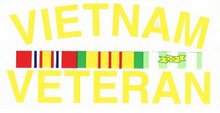I joined the US Navy in 1965. I was two years out of high school with absolutely no definitive direction to my life. The Navy schooled me in the rudiments of Military Electronics, which would become a life-long career, affording me... and my family... a level of financial existence that was more than comfortable.
I have been around Military people most of my life, so I know that the desire to succeed becomes a separate, highly functioning portion of their brain regardless of their length of service. Their personal goals and desires are as varied as any segment of society, but their knowledge, skills and abilities as a group are incomparable.
My political thought process has always been greatly affected by which party or candidate I felt would do the best job for the currently serving and the veterans. I guess I have been fooled way more often than not.
This article from The New Yorker (via Art and Letters Daily... see sidebar link) says a lot about Military people, and their knowledge, skills and abilities. It also says a lot about people who think being in charge makes one capable.
(Excerpt)
It remains to be seen whether its appetite for learning the lessons of Iraq will extend to analyzing how it got into such a war in the first place. When General Shinseki failed to persuade Secretary of Defense Donald Rumsfeld to allocate more troops to the initial effort, he appeared before the Senate Armed Services Committee, where, under cover of answering a senator’s question, he went public with his estimate that the war would require “several hundred thousand” troops. His move failed. Deputy Assistant Secretary of Defense Paul Wolfowitz called Shinseki’s estimate “wildly off the mark,” and the Army invaded Iraq with about a hundred thousand soldiers.
Wednesday, January 12, 2005
Subscribe to:
Post Comments (Atom)





No comments:
Post a Comment